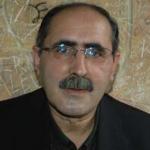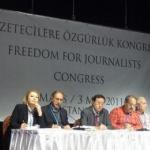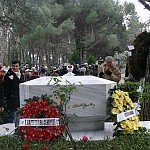BİA MEDIA MONITORING REPORT
World Press Freedom Day Welcomed by 103 "Defendants of Opinion"
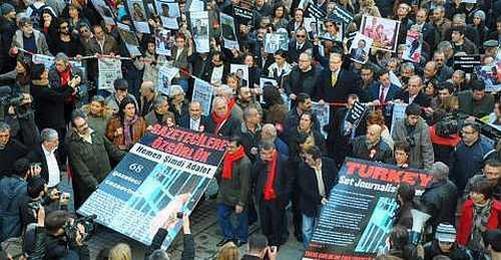
Five journalists were imprisoned because of their writings. 42 of their colleagues were put behind bars till 31 March 2011 in the scope of major trials like "Ergenekon", "KCK", "Revolutionary Headquarters" or "Sledgehammer".
The custody of journalists, Nedim Şener and Ahmet Şık as the most prominent figures, and the raids on their homes and offices left their mark on the first three months of 2011.
13 people were sentenced to imprisonment of 21 years and ten months in total throughout the first three months of 2011on the grounds of their opinions on the Kurdish question. They were handed down monetary fines amounting to TL 66,946 (€ 33,500).
Upon the insistence of the Court of Appeals, a local court paved the way to a potential flood of trials when they sued writer Orhan Pamuk by reason of his statement "We killed 30,000 Kurds and 1 million Armenians". Thus, the controversial Article 301 ("insult" to the Turkish state) now also penetrated compensation files. Sociologist İsmail Beşikçi was convicted under the Anti-Terror Law because of the letter "Q" and received a prison sentence of one year and three months.
Journalists welcome the 3 May World Press Freedom Day in an environment where standards of press freedom and freedom of expression are made a topic of debate by the highest authorities and where people who are fighting for the sake of press freedom are being made targets.
Prime Minister Erdoğan said, "27 journalists are imprisoned, none of whom is in jail by reason of their journalistic activities". To the detained journalists who are expecting a fair trial, this statement equals an influence of the judiciary.
The 2011 January-February-March Media Monitoring Report of the Independent Communication Network (BİA) Media Monitoring Desk reveals that 62 journalists as part of a group of 103 people in total are currently being prosecuted in the scope of trials related to freedom thought and freedom of expression.
The report marks 3 May by putting forth the pressure on columnists applied by the government; the conviction of 13 people to imprisonment of 21 years and ten months in total within the first quarter of the year that came together with monetary fines amounting to TL 66,946 on the grounds of voicing their opinion on the Kurdish question; the oppression of journalists reporting about major trials like "Ergenekon" et al. by prison threats in the context of 2,000 pending trials; the wiping out of the right to confidentiality of a source as one of the most fundamental rights of journalists by raiding homes and offices (as in the cases of Ahmeht Şık and Nedim Şener).
On 20 pages the report comprises the struggle of 267 people against violations that were categorized under the following headings: "Attacks and Threats", "Arrests and Detentions", "Trials regarding Press Freedom and Freedom of Expression", "Corrections and Legal Redress", "European Court of Human Rights", "Reactions to Censorship" and "Applications of RTÜK".
Political and financial pressure is still pushing the Turkish media towards auto-censorship. The media try to continue their work in an environment that lacks editorial independence and a sufficient legal basis.
The European Court of Human Rights (ECHR) sentenced Turkey to monetary fines summing up to TL 117,000 (€ 58,000) on the grounds of violations of freedom of expression in the scope of five files brought before the international court by 15 applicants. Fines handed down to Turkey in the same period of time last year amounted to TL 133,000 (€ 63,423) in total. This rise continues the general tendency of increasing fines issued to Turkey by the ECHR.
Upon the prompting of the government and the complaints of viewers, the Radio and Television Supreme Council (RTÜK) released a warning to Show TV because of the series "Magnificent Century" that is depicting the realm of Sultan Suleiman the Magnificent. In a legal struggle, NTV successfully fought off a warning fine given by RTÜK because of the news channel's live broadcast of a statement made by Erato Kozakou-Marcoullis, then Foreign Minister of the (Greek) Republic of Cyprus. The Council of State emphasized the "right of the people to information" accordingly.
47 journalists in prison
On 31 March 2011, five journalists were being incarcerated by reason of their published articles and books, namely Vedat Kurşun and Ozan Kılıç as former editors-in-chief of the Kurdish Azadiya Welat newspaper; Bedri Adanır, owner of Aram Publishing and executive of Hawar newspaper; the editorial manager of the İşçi Köylü ('Worker Peasant') newspaper, Barış Açıkel; and Proleterce Devrimci Duruş ('Proletarian Revolutionary Stance') newspaper writer Nevin Berktaş. At the first quarter of 2010, two journalists were behind bars because of their writings.
Considering the detention of 42 journalists, it has not been clarified yet whether these members of the press will be tried on the grounds of their journalistic activities. In January-February-March 2010, 32 journalists were in the same situation.
13 people sentenced to almost 22 years in jail under Anti-Terror Law
In the first quarter of 2011, 46 people faced prison terms of 334 years and 4 months in total and monetary fines summing up TL 66,946 under the Anti-Terror Law (TMY). 13 defendants were sentenced to imprisonment of 22 years and 10 months in total and monetary fines amounting to TL 66,946. At the same time in 2010 in comparison, Turkish courts handed down prison sentences of 28 years and five months and monetary fines of TL 16,660 (€ 8,300) in total.
44 people accused of "insult"
44 people were facing prison terms of up to 77 years and three months in total on charges of insult. Three of these defendants were sentenced to eleven months in jail and monetary fines of TL 10,580 (€ 5,250) in total. In the same period of time in 2010, 48 people were facing imprisonment of 147 years and eight months.
13 compensation claims
13 people were brought to court regarding compensation claims worth TL 349,000 (€ 175,000) altogether. Two of them received fines of TL 12,000 (€ 6,000) in compensation.
70-year prison threat for "violation of confidentiality"
Seven journalists are being tried under allegations of "violating the confidentiality of an investigation" according to Article 285 of the Turkish Criminal Law (TCK) on the grounds of their news about ongoing trials. They are facing prison terms of 70.5 years in total.
Ten people tried on "influencing the judiciary"
Ten people stand trial on charges of the "attempt to influence a fair trial" (TCK 288) because of their news regarding judicial proceedings; potential prison terms: 93 years.
Pınar Sağ and Ferhat Tunç convicted of "praise"
Six people are under threat of twelve years, ten months and 25 days in prison on charges of "praising crime and a criminal". Kurdish artists Pınar Sağ and Ferhat Tunç were sentenced to imprisonment of ten months and 25 days in total.
Five people in the dock for "alienating the people from military service"
Five people might be sentenced to imprisonment of 15 years and five months altogether on charges of "alienating the public from military service" (TCK 318). Halil Savda was sentenced to five months behind bars in the same context.
The people who were behind the assassinations of journalists Ümit Kaftancıoğlu, Abdi İpekçi, Çetin Emeç, Uğur Mumcu, Ahmet Taner Kışlalı, the murders of about 20 journalists of the Kurdish press in the 1990's and the ones who gave the order for the killing of Hrant Dink are untraceable.
Information: BİA Media Monitoring Desk, Tel. (0212) 251 15 03, Fax. (0212) 251 16 09, E-mail. [email protected]
BİA MEDIA MONITORING REPORT 2024
The government made journalists' lives a living hell in 2024
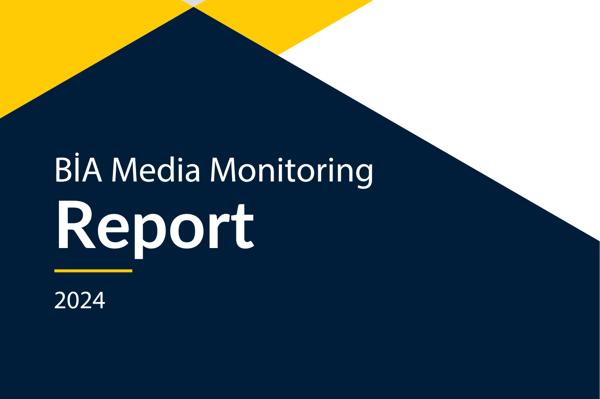
BİA MEDIA MONITORING/OCTOBER-NOVEMBER-DECEMBER 2024
Truth concealed through repression from all sides targeting journalists
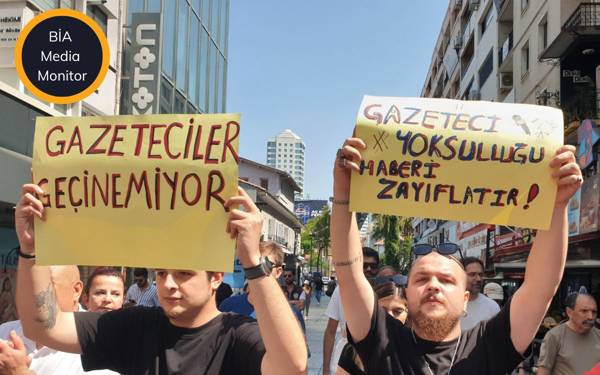
BİA MEDIA MONITORING REPORT
Just silence the journalist, and I won't touch you!

BİA MEDIA MONITORING APRIL-MAY-JUNE 2024
Journalists are on the target and have no legal security anymore!
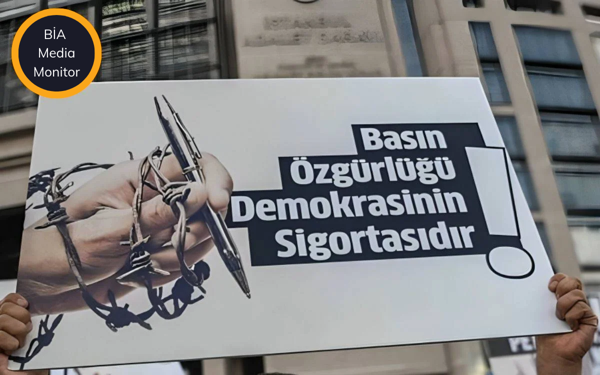
BİA MEDIA MONITORING REPORT
The era of 'judicial control' confinement and torture in journalism







